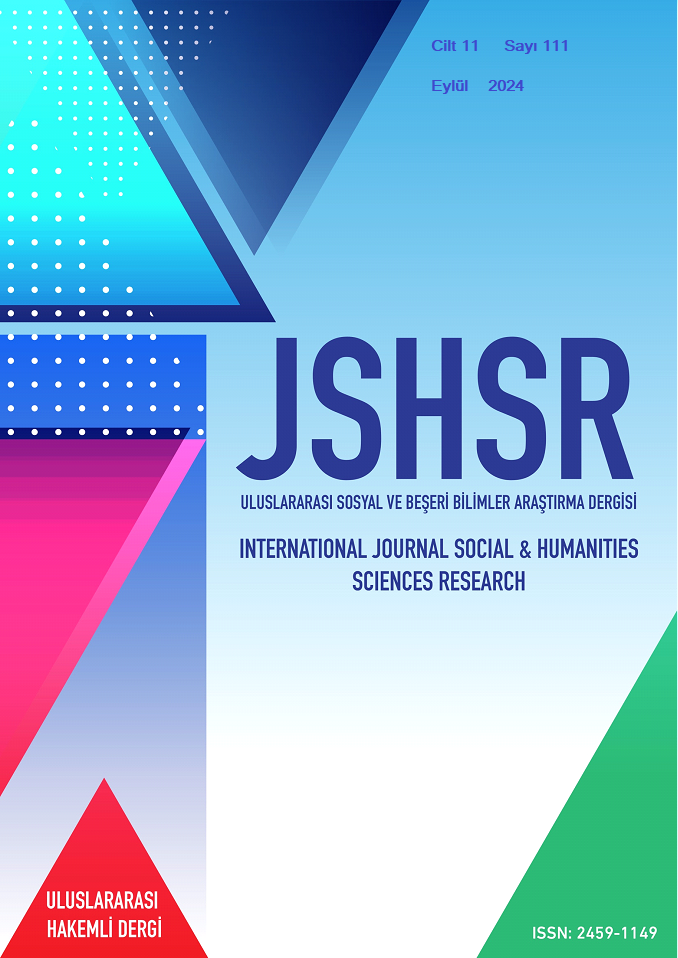Shawkānī’s Method of Interpretation of the Mushkil Verses in His Tafsir Titled Fath al-Qadīr
DOI:
https://doi.org/10.5281/zenodo.13864006Keywords:
Tafsir, Mushkil, Mushkil al-Qur'an, Shawkānī, Fath al-QadīrAbstract
In this article, mushkil verses in Shawkānī’s tafsīr titled Fath al-Qadīr were investigated. Shawkānī included the subject of Mushkil al-Qur’ān in his work. The aim of the research is to reveal how Shawkānī reconciles the seemingly contradictory verses in his work and how he interprets the apparent contradiction between them. Because this situation is important in terms of understanding how a commentator who wrote many works during his time and reached the degree of mujtahid interpreted the seemingly difficult issues among the verses of the Qur’an and, as a result, his contribution to the correct understanding of the Qur’an. In this study, Shawkānī’'s 5-volume commentary titled Fath al-Qadīr was discussed using the literature review method. In addition, other works that will contribute to the understanding of the subject have also been used. Before moving on to the main subject of the research, brief information was presented about the literal meanings of the word mushkil, the definition of the concept of Mushkil al-Qur’an, the rules of preference, the reasons and forms of contradiction in the context of the conceptual framework. As a result of the research, we can say the following: He discussed both his own opinion and the narrations on the subject regarding the verses that seem to have contradictions and inconsistencies among them. The author has clarified that there is no contradiction between the verses, even though there may appear to be a contradiction on the surface, in reality, there is no contradiction at all. In order to reconcile the mushkil verses, he sometimes included the views of the commentators before him and sometimes he made quotations about the verses that seemed mushkil, especially from Ibn Abbas. After mentioning various opinions, the commentator expressed his own preference. Sometimes, he was contented with quoting many narrations about the unification of the verses and left the choice to his readers.
References
Ahmed b. Hanbel. (ts.). Müsned. el-Mektebetü’l-İslâmiyye.
Albayrak, H. (1993). Kur'ân'ın bütünlüğü üzerine Kur'ân'ın Kur'ân'la tefsiri. Şule Yayınları.
Buhârî, E. A. (1422). el-Câmiu’s-sahîh, Dâru Tavki’n-Necât.
Cerrahoğlu, İ. (1985). Tefsir usûlü. Türkiye Diyanet Vakfı Yayınları
Cevherî, E. N. (1399/1979). es-Sıhâh tâcu’l-luga ve sıhâhu’l-‘Arabiyye. y.y.
Demirci, M. (1998). Tefsir usûlü ve kaynakları. İFAV Yayınları.
Demirci, M. (ts.). Tefsir tarihi. MÜİFV Yayınları.
Demirci, M. (2009). Tefsir terimleri sözlüğü. y.y.
Erdoğan, M. (2005). Fıkıh ve hukuk terimleri sözlüğü. Ensar Neşriyat.
Ezherî, E. M. (2001). Tehzîbu’l-luga. Dâru İhyâi’t-Turâsi’l-‘Arabî.
Halîl b. Ahmed. (ts.). Kitâbü’l-‘ayn. Dâru’l-Hilâl.
Heysemî, E. H. (ts.). Mecmau’z-zevâid ve menbau’l-fevâid. Dârü’l-Kitâbi’l-‘Arabiyye.
İbn Düreyd, E. B. (1345). Kitâbu cemhereti'l-luga (1. Baskı.). Mektebetü’l-Müsennâ.
İbn Fâris, E. H. (1390/1970). Mu'cemu mekâyîsi’l-luga (2. Baskı.). y.y.
İbn Kuteybe, E. M. (1393/1973). Te'vîlü müşkili'l-Kur'ân (2. Baskı.). Dâru’t-Turâs.
İbn Mâce, E. A. (ts.). es-Sünen. Dâru İhyâi’t-Turâsi’l-‘Arabî – Faysal Îsâ el-Bâbî e-Halebî.
İbn Manzûr, C. M. (1995). Lisânü'l-‘Arab. y.y.
Kurtubî, E. A. (1427/2006). el-Câmi’ li-ahkâmi'l-Kur'ân (1. Baskı.). Müessesetu’r-Risâle.
Müslim, E. H. (ts.). el-Câmiu’s-sahîh. Dâru İhyâi’t-Turâsi’l-‘Arabî.
Nesâî, E. A. (1421/2001). es-Sünen. Müessesetu’r-Risâle.
Özel, M. (2006). Kur'ân ve tefsir terimleri sözlüğü (1. Baskı.). Kayıhan Yayınları.
Suyûtî, C. (1416/1996). el- İtkân fî ulûmi'l-Kur'ân (1. Baskı.). Dârü’l-Fikr.
Şevkânî, M. B. A. (1427/2007). Fethü'l-Kadîr. Dârü'l-Hadîs.
Tirmizî, E. İ. (1998). es-Sünen. Dâru’l-Garbi’l-İslâmî.
Turgut, A. (1991). Tefsir usûlü ve kaynakları. MÜİFV Yayınları.
Yerinde, A. (2006). Müşkilü'l- Kur'ân. Türkiye diyanet vakfı İslâm ansiklopedisi, (Cilt. 32, s. 164- 167). TDV Yayınları.
Zemahşerî, E. K. (1419/1998). Esâsu’l-belâğa. Dâru’l-Kütübi’l-‘İlmiyye.
Zerkeşî, B. M. (1427/2006). el- Burhân fî ulûmi'l-Kur'ân. Dârü'l-Hadîs.
Downloads
Published
How to Cite
Issue
Section
License
Copyright (c) 2024 INTERNATIONAL JOURNAL OF SOCIAL HUMANITIES SCIENCES RESEARCH

This work is licensed under a Creative Commons Attribution 4.0 International License.


